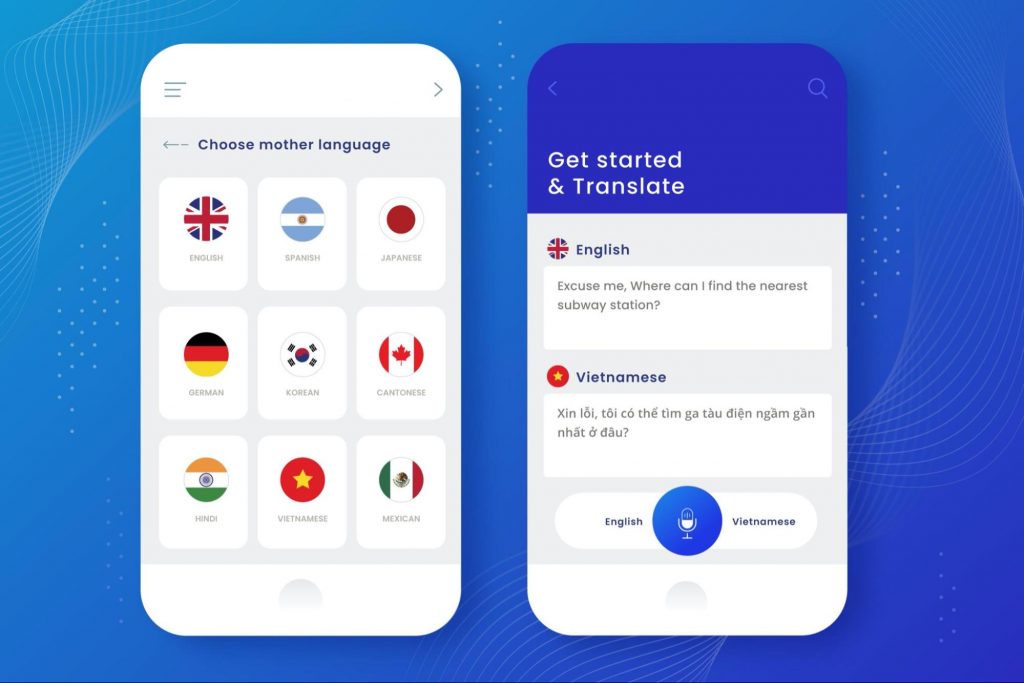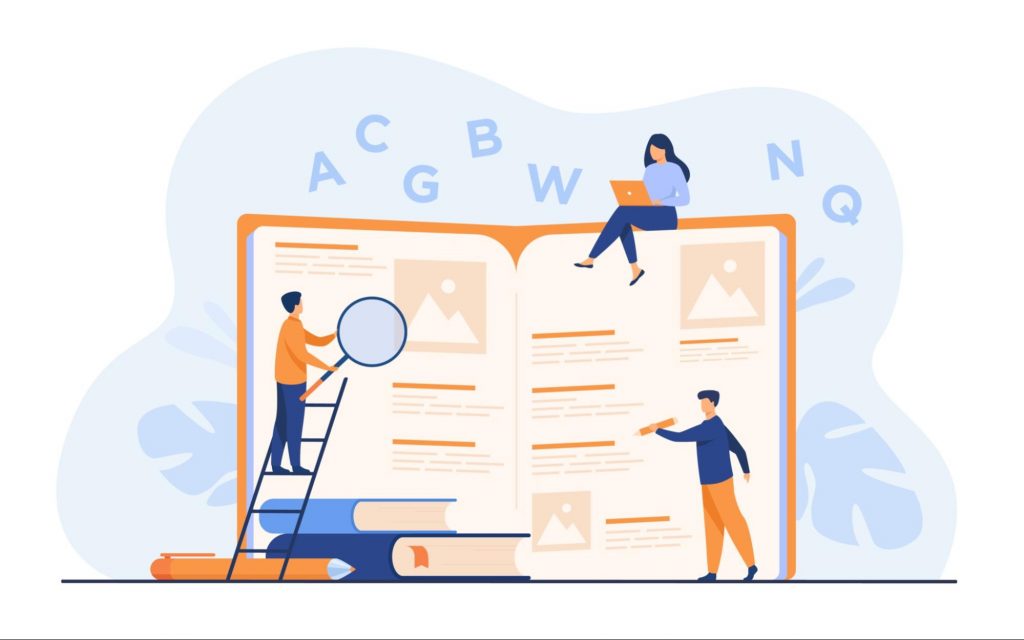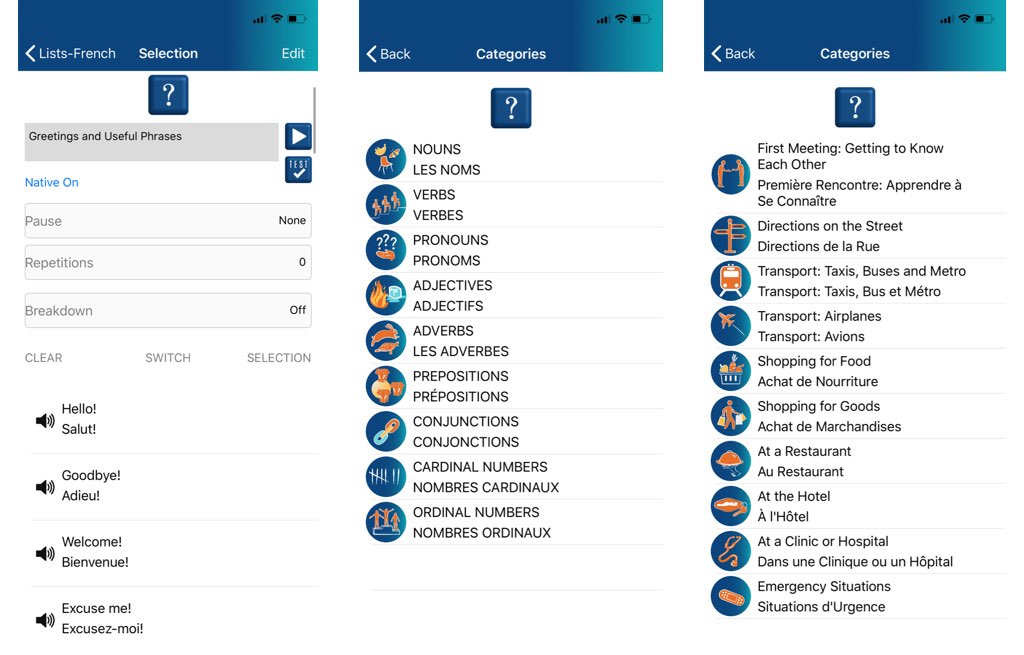Can A Translation App Replace Learning A Language?
Language translation apps have come a long way over the last decade. From the earliest days of Google Translate, to the current slate of AI powered apps that can translate in real time, the accuracy of this technology has improved immensely. In many people’s minds, they now wonder if a translation app can replace learning a language. Are we coming to a point where we can use an app to translate conversations like the translator tech seen in science fiction media?
A simple response to this question is to say no, apps are not a good replacement for learning languages. There are many reasons why this is the case, and in this article we are going to be addressing the ones that stand out the most. While translators have their use, there are many reasons why actually learning a language is the best choice when possible.

Why Should We Learn A Language?
What benefits are there to learning a language? Besides the obvious, learning a language actually has a multitude of benefits that range from cognitive improvement to cultural competency. Let’s take a look at a few of these benefits and see some reasons to learn.
Cognitive Improvements
Being multilingual has fascinating effects on our brains. Studies have shown that being bilingual has a variety of cognitive benefits across all stages of life. From childhood to our golden years, the ability to speak, process, and understand multiple languages helps brain function.
On the younger end of the age spectrum, children as young as seven months old who are raised in a bilingual household show improvements in learning. As they grow older, they show improvements in memory and vocabulary. Adult and teenage brains show improvement in focus and executive function, making learning easier and information processing faster. Studies using fMRI even show improved blood flow and brain structure in multilingual individuals as well.
In elderly individuals being bilingual has been shown to help fight age related cognitive decline. Bilingual brains are good at rerouting around areas that have lost function to help keep you sharp. On top of that benefit, bilingualism also helps to hold off the effects of Altzhiemers and other cognitive illnesses.
Social and Work Benefits
Learning to speak a second language has some more tangible benefits that are apparent in your day to day life. Being bilingual helps you to broaden your horizons and be able to communicate with more people. Especially when living in an area with people from diverse backgrounds, increasing the ability that you can communicate with them in their own language can help you both make friends and do business.
When it comes to work, many businesses see the benefits of having bilingual staff. Communication with customers or clients who speak different languages is vital to success in many industries, and employees with language skills can find themselves getting higher pay or access to more job opportunities.
Travel is another major social benefit from learning a language. The ability to communicate with the locals at your destination can make the experience much more pleasant and enjoyable. You can also make some friends too since you will not only be limited to communicating with people who speak your language.
Cultural Competency
One of the great things about learning a language is that language imparts culture. On the journey to fluency, you gain an understanding of the culture behind the language. Language and culture are tied together, and as understanding of one increases so does the understanding of the other. Culture and language are keys that unlock each other, and translating a language with an app will not provide you with those benefits.
Language is more than the mechanics of the words being spoken. The layers of meaning and intent behind each word is something that takes an understanding of culture. There are benefits to understanding the culture behind a language other than just speaking it. Opening ourselves up to other cultures increases our ability to feel compassion and empathy for others. Understanding other cultures also helps us to understand ourselves and our place in the world better.

Why Should We Not Rely On Translation Apps?
If you feel that the benefits to learning a language we have addressed already do not apply to you, then the question is why should you not rely on a translation app. While technology is ever improving and these apps have increased in power and ability to translate in real time, there are just some things they cannot do. Let’s take a look at some of the reasons why you should choose not to use a translation app over learning a language.
Delayed Response
While translation apps are getting very good at translating spoken words quickly, you will still need to take the time to read the response in your language after. Then, you will need to speak into your app and have it translate your response for the other person, unless they also happen to be using a translation app too. This is introducing a layer of delay to every conversation, which may be okay in some situations but in others could be a stumbling block at best. At worst, you could find yourself in a situation where urgent information is being told to you and you cannot respond quickly enough.
Incompatible Situations
Imagine you are in a crowded bar, or a busy restaurant, or a busy train station during prime travel hours. Think about the noise levels in these situations. An app is going to have a difficult time picking out the one voice you need it to hear, even if you are placing the phone or tablet right in face of the person you are talking to (which could itself be a cultural faux-pas).
Noise might not be the only problem. You may find yourself without a signal, or worst yet unable to use your device. Low battery, places where devices are not allowed to be used, rural locations, or just general low signal all could contribute to rendering the situation incompatible to reliance on an app for translation.
Translation Is Not Always Accurate To Meaning
Direct translation lacks the ability to understand the nuances of language. Think about the English language; there can be a multitude of ways to say “How is your day today”, which range in meaning from sincere to sarcastic. The meaning is lost if you do not understand why some words are used instead of others, and the tone in which they are said. Direct word for word translation can also result in what amounts to incomprehensible gibberish, poor health outcomes, can result in offending someone.
A great little trick is to use Google Translate to translate a phrase from English to another language. Then translate it back. This is especially striking when using informal language. In many cases the meaning is totally lost or changed by the translation.
Learning a language allows you to learn the context and nuances of language to help prevent this kind of error in translation. This may be one of the most important reasons not to rely on apps to translate for us. The reason why professional translators who speak multiple languages are used in business and diplomacy is due to these very factors, as they can take the words spoken and translate them into an equivalent that carries the same meaning. The same goes for localization teams for media who understand that literal translation is not adequate.
Language Is More Than Spoken Words
Think about the conversations you have in your daily life. More than just words go into how we use language to communicate, even on a phone call we tend to use our body to give social cues or emphasis. The words that we are speaking are often given context by our body language and facial expressions. Using a translation app can mean you are not translating those visual cues or missing out on the other cultural context that you might have understood if you knew the language or were more focused on the speaker than the device.
Positives Of Translation Apps
None of the problems we cite with translation apps render them as totally useless though. They are a tool and all tools are best when used appropriately. You shouldn’t use a hammer to secure a screw, or a screwdriver as a hammer. While they might work to some degree, they are not ideal solutions and can cause problems. The same goes for translation apps: when used properly they can be amazing tools that help you learn how to speak a language, offer a solution to some problems, or supplement your knowledge.
Translation Apps As Learning Tools
Translation apps can be great tools that go along with a language learning app like Encore!!! You can use them to supplement your lessons or find words you want to focus on learning. If you hear a word used in conversation or while watching media and you want to learn what it means, you can look it up with a translation app and then find it in your language learning app to make it a focus of your studies.
Solve Problems On The Fly
You might not be fully fluent in a language, but speak it well enough to get by and understand day to day language. In cases like this you may come up against some words or phrases that you still don’t quite have mastered. In some languages it takes longer to learn to read the written word because of differing alphabets. Apps can be great for this by translating those problem words or signs for you. With a foundation in the language, you can pick up the difference in a literal translation and have a better understanding of what you are reading.
Supplement Your Knowledge With A Translation App
Continuing from the last point, sometimes our knowledge has holes in it and there is information that we are missing. In these cases a translation app can be great for filling those holes in our proficiency. Much like how you would use a dictionary to figure out a word in your main language, a language translation app can let you quickly look up words to help you express yourself more clearly.
Encore!!! Helps You Learn Instead Of Just Translate
Now that we see the problems and strengths of translation apps, what should you use to learn a language? While there are a plethora of options available to you, we recommend giving Encore!!! a try. Encore!!! offers a wide variety of languages that is only continuing to grow, all using a proven learning method that lets you learn while going about your daily chores or while relaxing.

If you use a translator that helps you find a word or phrase that you want to learn or focus on, you can find it or record and upload it into your customizable lessons. Encore!!! is a great option for a language learning app that can work alongside a translation app to maximise your learning experience.
Conclusion
While translation apps might never be able to fully replace learning a language, they are useful tools to help us learn. Unfortunately, there are many of these apps on the market who are choosing to mislead potential users into believing that they are a full substitution for language learning. This leads to problems when the apps lack the ability to understand cultural contexts and colloquialisms. Learning languages has benefits for our health, cognitive ability, social lives, business, and helps us understand cultures. Understanding cultures makes us into more empathetic people, which is something that apps and AI are not strong at.
Translation apps do have a place in supplementing existing knowledge and educational programs such as Encore!!! and should be used as such, rather than as a magic bullet to avoid learning languages. When using translation alongside a language learning program you are using a combination that ensures the best opportunity to learn and fully understand whichever language you choose.
How to Use Contents in this folder
